Brief introduction of lateral tie rod bellows expansion joint
The expansion joint is a flexible part composed of two bellows with the same geometric parameters and wave numbers connected by an intermediate pipe, a tie rod and an end plate. It is mainly used to compensate the lateral displacement of single-plane or multi-plane curved pipe sections. Suitable for "L" and "Z" type piping systems. Since the tie rod can withstand the action of pressure thrust and other additional external forces, the expansion joint itself absorbs the internal pressure thrust and will not generate external force on the pipeline. Therefore, intermediate fixed brackets or guide brackets can be used for the pipelines at both ends of the expansion joint to reduce construction costs and improve construction efficiency. .
The transverse large tie-rod corrugated expansion joint produced by our company adopts the optimized design of high American EJMA standard, which has the characteristics of good flexibility, corrosion resistance, high temperature resistance, wear resistance and long fatigue life, and can absorb the axial, lateral and angular displacement of the pipeline. . It has been matched for many large-scale cement plants, steel plants, power plants, chemical plants and other key industries and enterprises at home and abroad, and the product quality is stable and reliable.
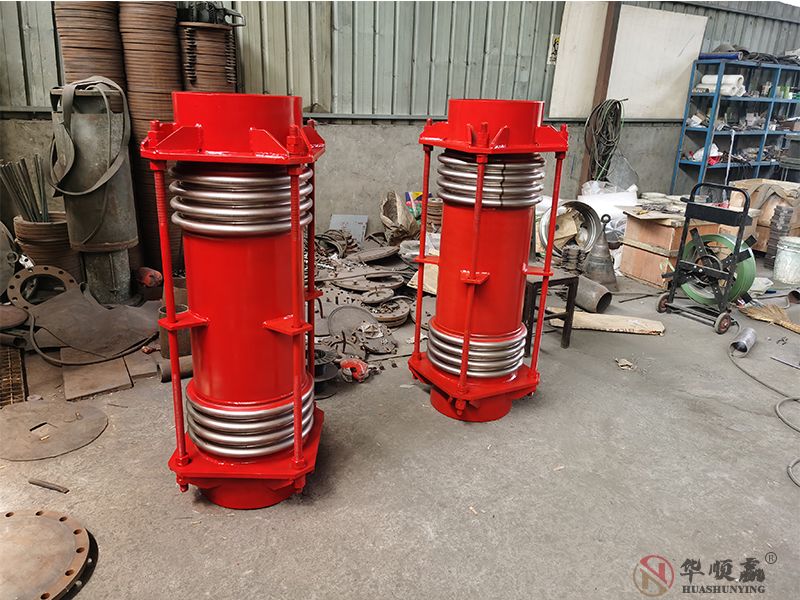
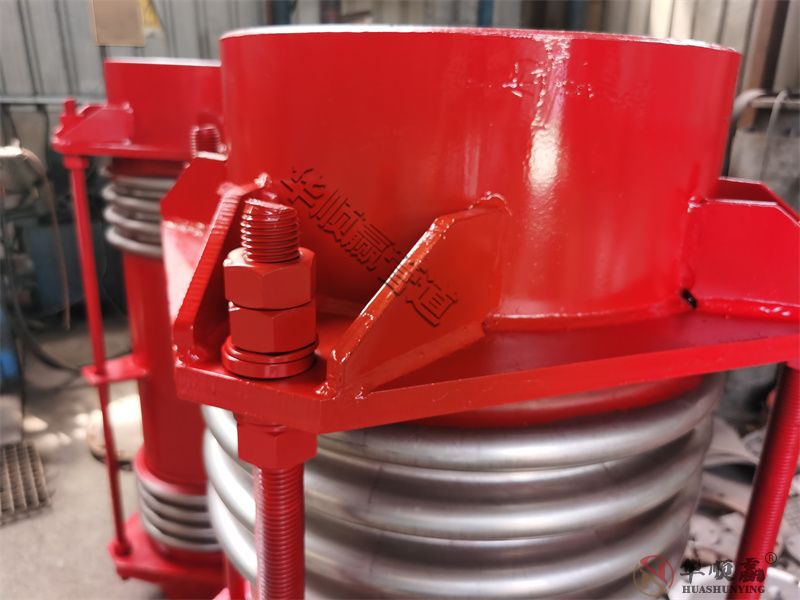
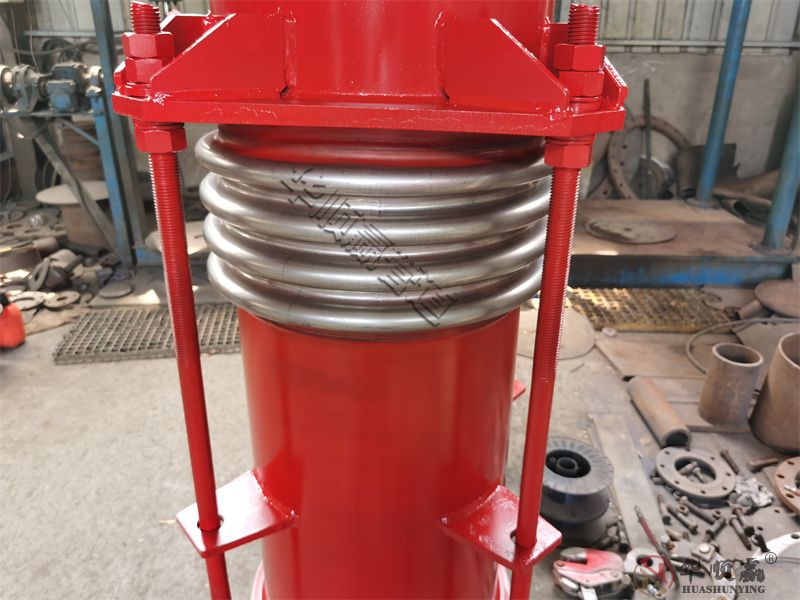
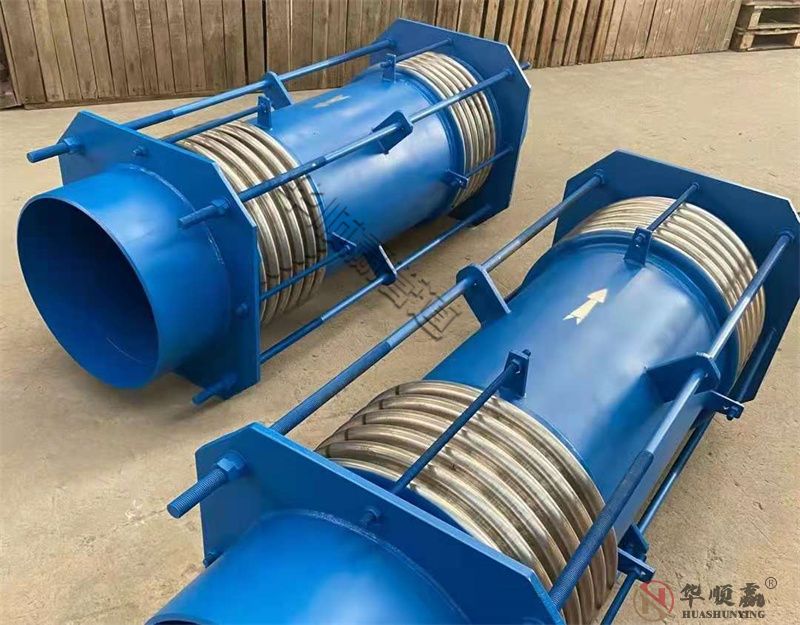
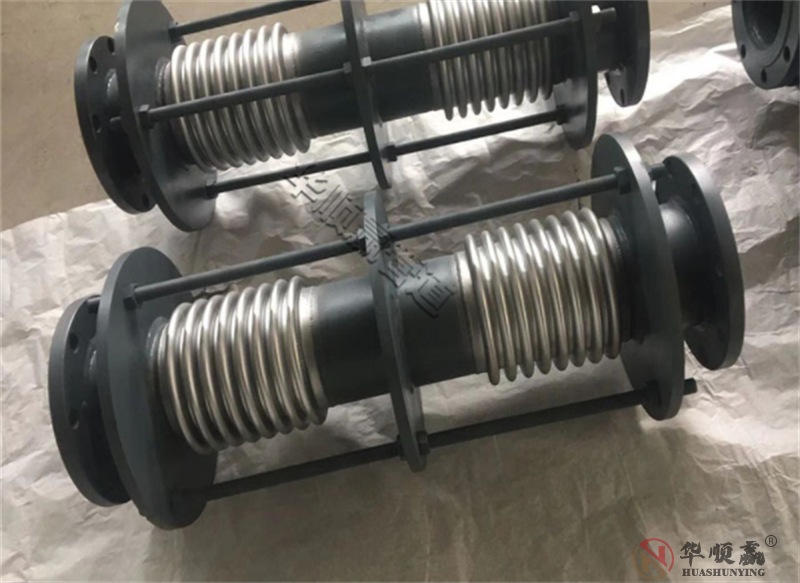
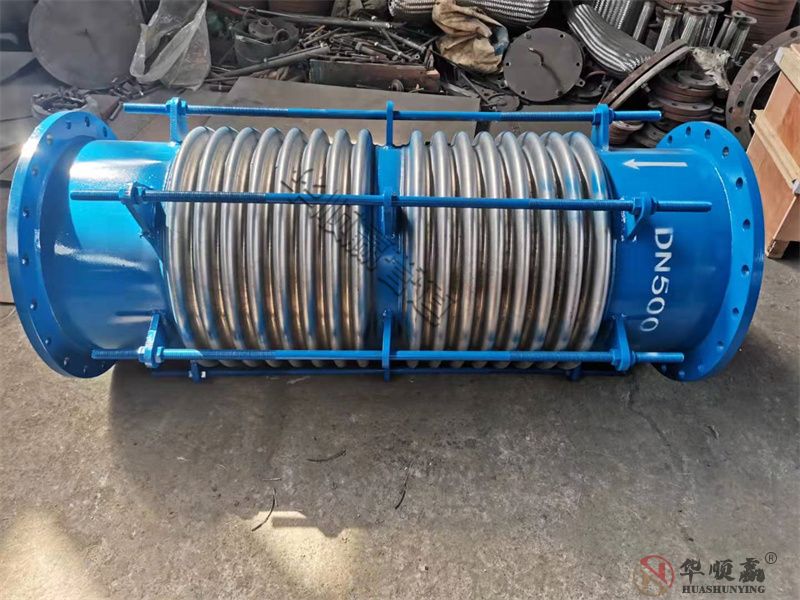
Technical parameters of lateral tie rod corrugated compensator:
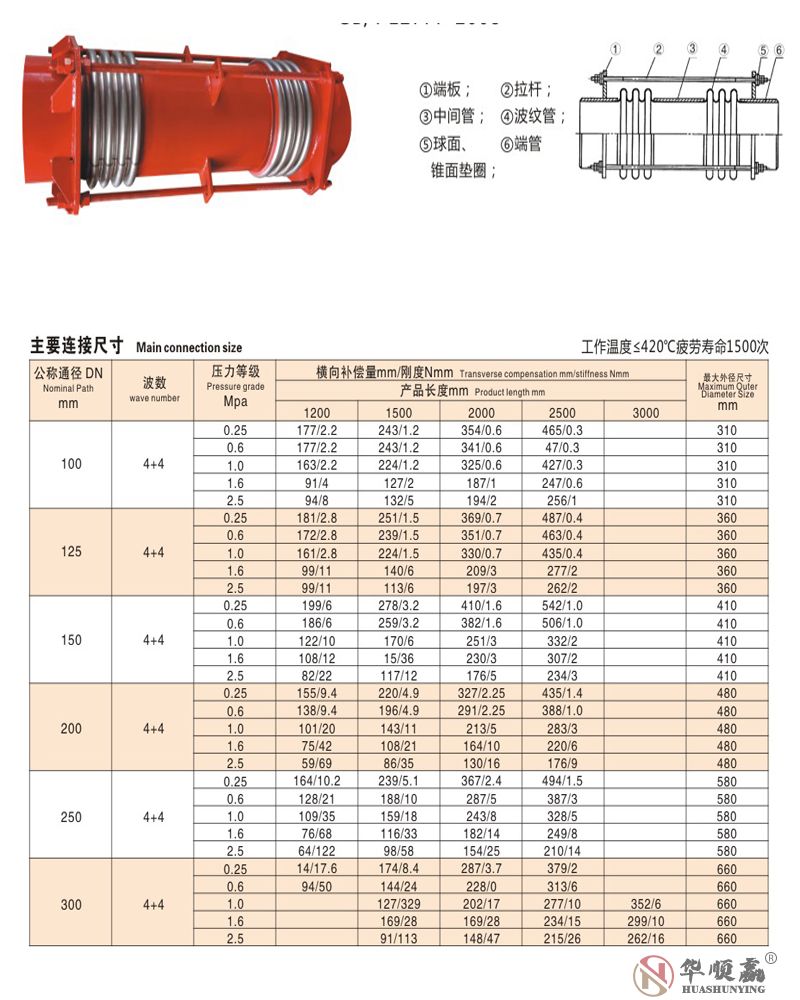
Performance characteristics of transverse large tie rod bellows expansion joint:
It is composed of two bellows connected by the intermediate pipe, tie rods, end plates, spherical and conical washers, etc. It mainly absorbs lateral displacement, and can also be used to compensate for axial, lateral, angular, and composites of these three forms. Displacement in any direction. It is recommended to install the double tie rod type expansion joint in the middle short pipe arm of the Z-shaped pipe with a 90° angle to compensate the axial displacement of the long pipeline at both ends.
The lateral displacement is the relative displacement in the vertical direction of the longitudinal axis of one end of the bellows and the other end. Single bellows can have lateral displacement, but the displacement is very small. A good solution is to take double bellows as shown in Figure 2. The result is an increased amount of lateral displacement compensation and a reduced force.
Application scope of transverse large tie rod bellows expansion joint: Mainly used in "L" type and "Z" type piping system.
Tel:+86-0371-61070766
Fax:+86-0371-61070766
Phone:+8615136203167
Email:info@sypipeline.com
Add:Pipeline Equipment Park, Xicun Town, Gongyi City, Henan Province, China